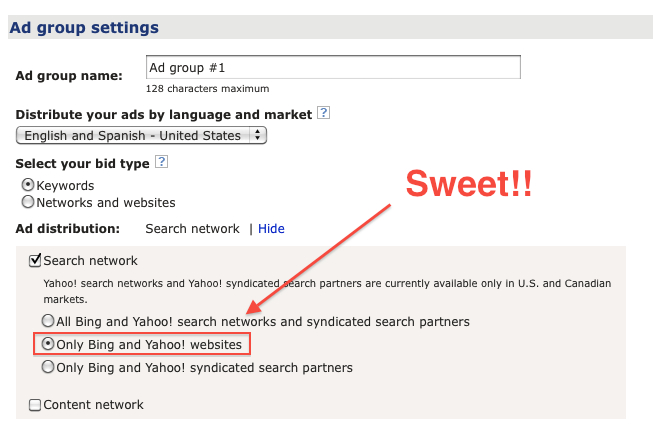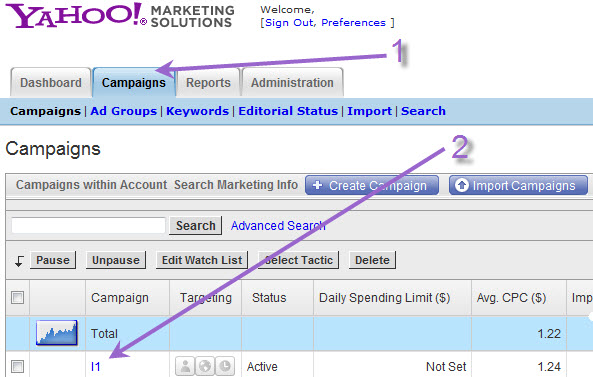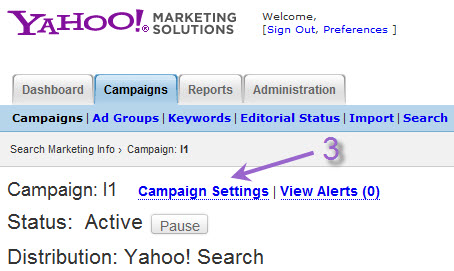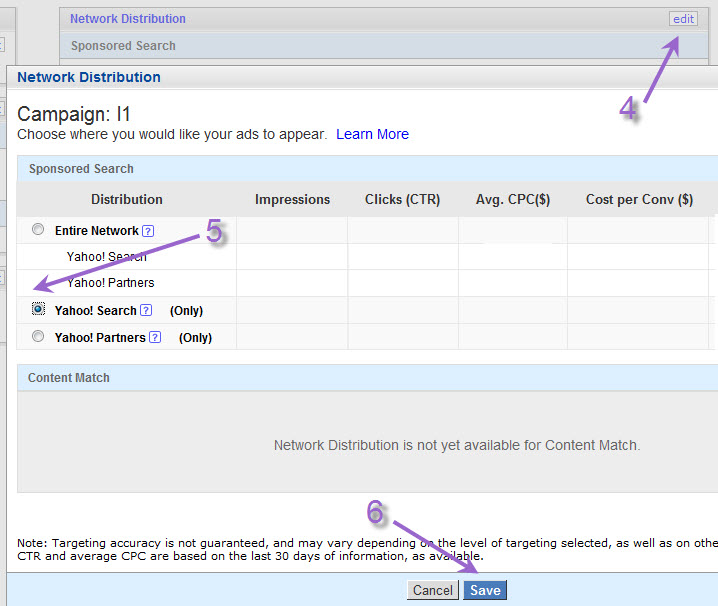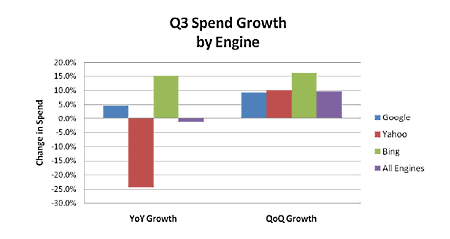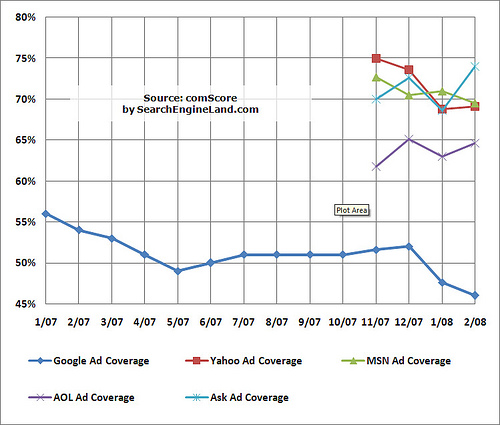The web has a wealth of information (and misinformation) which makes it tough to filter out the noise. PPC is also tricky because most of the time, there are no definitive answers and everything varies. The results of campaigns are hardly the same even if a landing page is stolen and re-used. Note: There are ways to reduce web copy theft which I’ll cover next week.
If you’re new to PPC and want to start out properly, you may get overwhelmed with the amount of research and execution involved. After finding your niche, keywords, keyword organization and landing page, the next objective is to determine the main sources for traffic.
Yahoo Search – Good Overall Starting Point
I see this tip shared quite a bit online. A lot of folks start with Yahoo because of its traffic converting slightly better than Google. In most circumstances, Yahoo’s CPC is lower than Adwords which is an incentive to new advertisers. The downside with Yahoo is their lower quality, spammy search partners. These are mainly domainer pages or junk, spyware infested sites. They finally allowed advertisers to exclude search partners but only upto 250 sites. I have an Adwords campaign where I have over 1000 sites excluded so 250 is a bit stingy.
So if you want to collect data for a test campaign, Yahoo is good if you limit to search and exclude spending money on their search partner program. Here’s $25 of free credit to help you get started.
Microsoft AdCenter – Less Risky, More Free Money
Vista is a vicious program that caused me tremendous grief and pain but other than that, I give Microsoft AdCenter a high approval just like XP. It is excellent for the new, super cautious advertiser on a limited budget. The two downsides are lack of market share which means fewer data and a weak content network. But if it’s your first campaign, the content network will provide little value anyway because you have very little control over it.
Microsoft is working really hard to attract advertisers and have released some of the best free tools available. My favorite is the Ad-Intelligence Office Excel plug-in and it’s compatible for both 2003 and 2007 version. The free keyword tool is the best of its kind because you access real live data, not cached like all the major tools. Aside from the cool tools, they’re also giving you a generous $75 worth of adcenter ads to get you started. Aaron and I tested Ad Intelligence back in January of this year – here’s our review.
Google Adwords – Cutting to the Chase for Immediate Results
Lots of mixed opinions from seasoned advertisers if Adwords is the best traffic source for initial testing. Advertisers in favor of Adwords as the entry point knows that Google delivers some of the highest traffic quality online. Google’s king-size ownership of the market allows advertisers to test campaign performance, keyword efficiency and landing pages with fast, accurate data to influence any changes. You’ll know in a shorter period how your offer will fare.
The other team knows Adwords as the most competitive channel on the market. A lot of new advertisers are easily discouraged if they’re not prepared for the fierce competition ahead. Expect incuring higher costs, complete lots of quality score requirements and face that risk of getting slapped around.
Again, there isn’t a right or wrong answer and agree with the logic of both sides.
Summary to Help Alleviate Confusion
Everything varies with PPC so choosing which platform to advertise in will depend on your product/service offer, competition, market size and campaign structure. Now that you’re familiar with the ups and downs of the major engines, here’s a quick summary of my baselines:
- If you’re in a competitive market such as insurance, mortgage, male reproductive organ enhancements, payday loans and etc, Yahoo or Microsoft could be a smarter choice because you’ll get the data you need at a fraction of Adword’s budget requirement.
- If your product is really niched with little traffic and competition, Adsense can be prioritized. This will help you extract data faster, from a very rich source without exhausting your budget.
